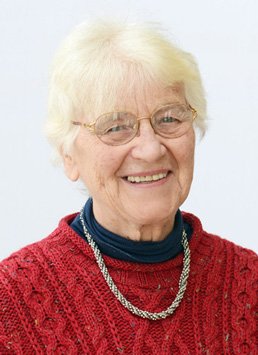Society for the Study of Women Philosophers, Inc.
a non-profit, tax-exempt educational charity 501(c)3 Internal Revenue Code
Laura Cereta
1469-1499
Moral Philosophy, Feminism, Humanism
|
Kate Lindemann's Women Philosophers pages |
 |
Remember!! Your purchase of books by clicking on Abe Books or Amazon links through this site earns us a small commission that is used to provide travel scholarships. |
Chronology:
1469 Laura Cereta was born in Brescia, Italy. Laura was the firstborn of Veronica di Leno and Sivestro Cereto. Laura was said to have been named for a laurel tree in the family garden that had withstood a violent storm. Her father palyed a significant role in the area. He was an attorney and a magistrate of the king.
1476 since her father believed in education for women she was sent to a convent where she learned reading, writing and some Latin from one of the nuns. She was much taken with convent life, especially the contemplative aspects. Laura Cereta was a rather sickly child and often suffered from insomnia during this time.
1478 Her father requires her to return home to care for her younger brothers and sisters. But a few months later she goes back to the convent for additional education in Latin. When she was nine, her father required her to return home again to care for her younger brothers and sisters.
A year later, at the age of 12, she is running the whole household Still, She continued her studies in religion, mathematics, physical sciences, and astrology under her father's guidance. When it was possible she went to lectures and she often worked late into the night reading the classics long after the rest of the family was in bed. It is reported that she took parts in public debates and argumentation.
1484 She marries Pietro Serina, a merchant from Venice who also liked things intellectual. It was a happy marriage and during this time Laura Cereta continued to expand her contacts with humanists.
1486 Piettro Serina dies of fever after only 18 months of marriage. The couple had had no children. Laura sorrowed and turned even more fully to the intellectual life to ease her grief. She never remarried. Instead she concentrated on scholarship. She attended meetings of scholars in Brescia and Chiari and gave readings from her essays. She cultivated friendships with women especially nuns: Nazaria, Soura Deodata de Leno, Santa Pelegrina and an abbess at Chiari.
1488 She begins to lecture on moral philosophy at the University of Padua. In this year she also published Epistolae familieares, a volume of her letters as a means of supporting herself. She was greatly criticized for this self publication. Still she continued her intellectual pursuits.
1489 Her father dies.
1499 Laura Cereta dies.
Contributions to Philosophy:
"All human beings, women included, are born with the right to an education" was a novel idea for her time.
Laura Cereta introduced the notion that the emotions has a place in criticism. This countered a long tradition that rational faculties alone were to be sued in criticism.
She encouraged the notion of a community of women aimed at scholarship and a critique of housework as a barrier to women's intellectual work.
Bibliography
1488 Epistolae Familieares
Material available online:
Letter to Bibulus Sempronius (Part 2)
Some Works about her:
Allen, Prudence. The concept of woman. Volume 2, The early humanist reformation, 1250-1500. Grand Rapids, Mich.: W.B. Eerdmans Pub., c2002.
Ebber, Jan Essay and text of some letters of Laura Cereta
Haraguchi, Jennifer Laura Cereta: an essay
Jordan, Constance Renaissance Feminism: Literary Texts and Political Models Cornell University Press, 1990.
King, Margaret. Women of the Renaissance University of Chicago Press, 1991
Rabil, Albert Jr. Laura Cereta: Quattrocento Humanist Medieval and Renaissance Texts and Studies, 1981.
Russell, Rinaldina. ed. Italian Women Writers A Bio-Bibliographical Sourcebook. Greenwood Press, 1994
Laura Cereta is one of more than 100 women featured in A Pictorial History of Women Philosophers photo album, and in Busted!! A Pictorial History of Women Philosophers, Vol. 1.
This page was last rebuilt 12/13/14.
Society for the Study of Women Philosophers